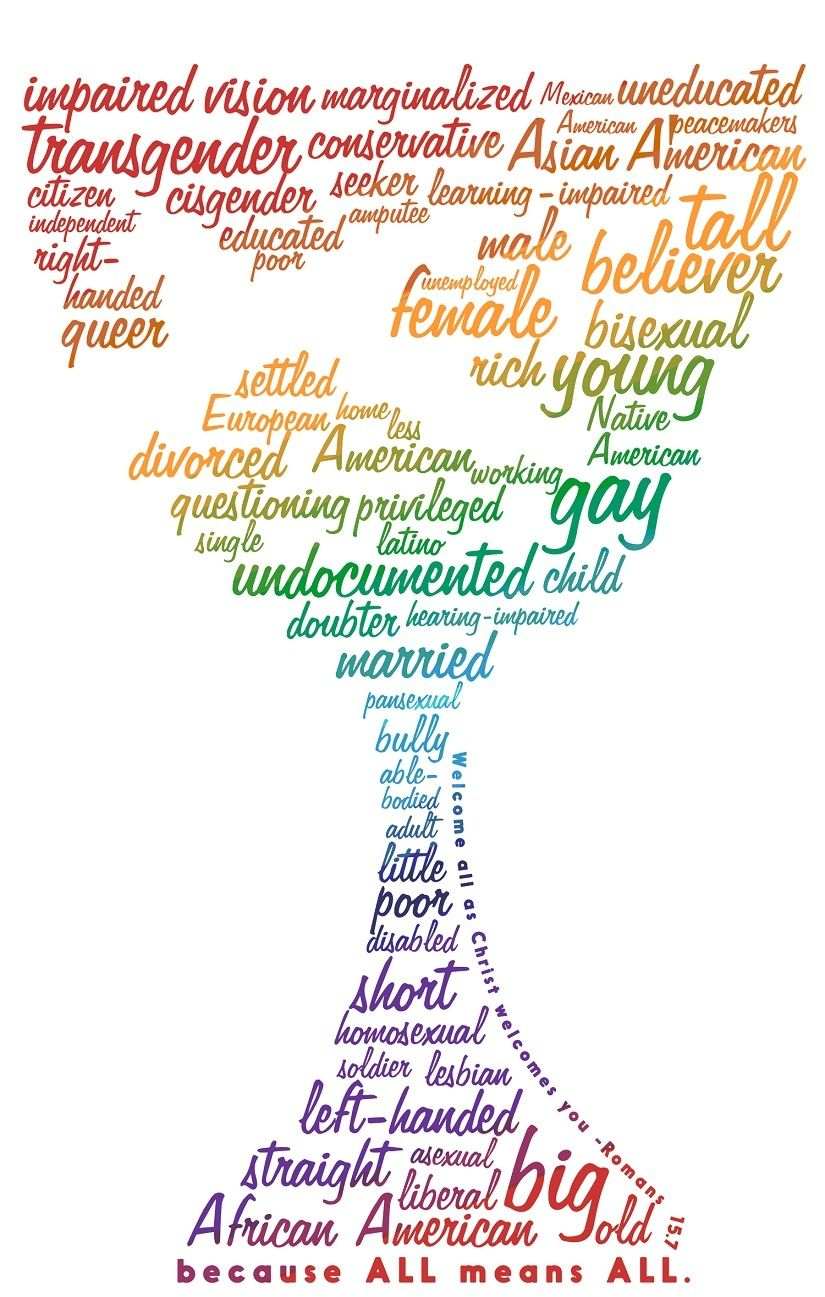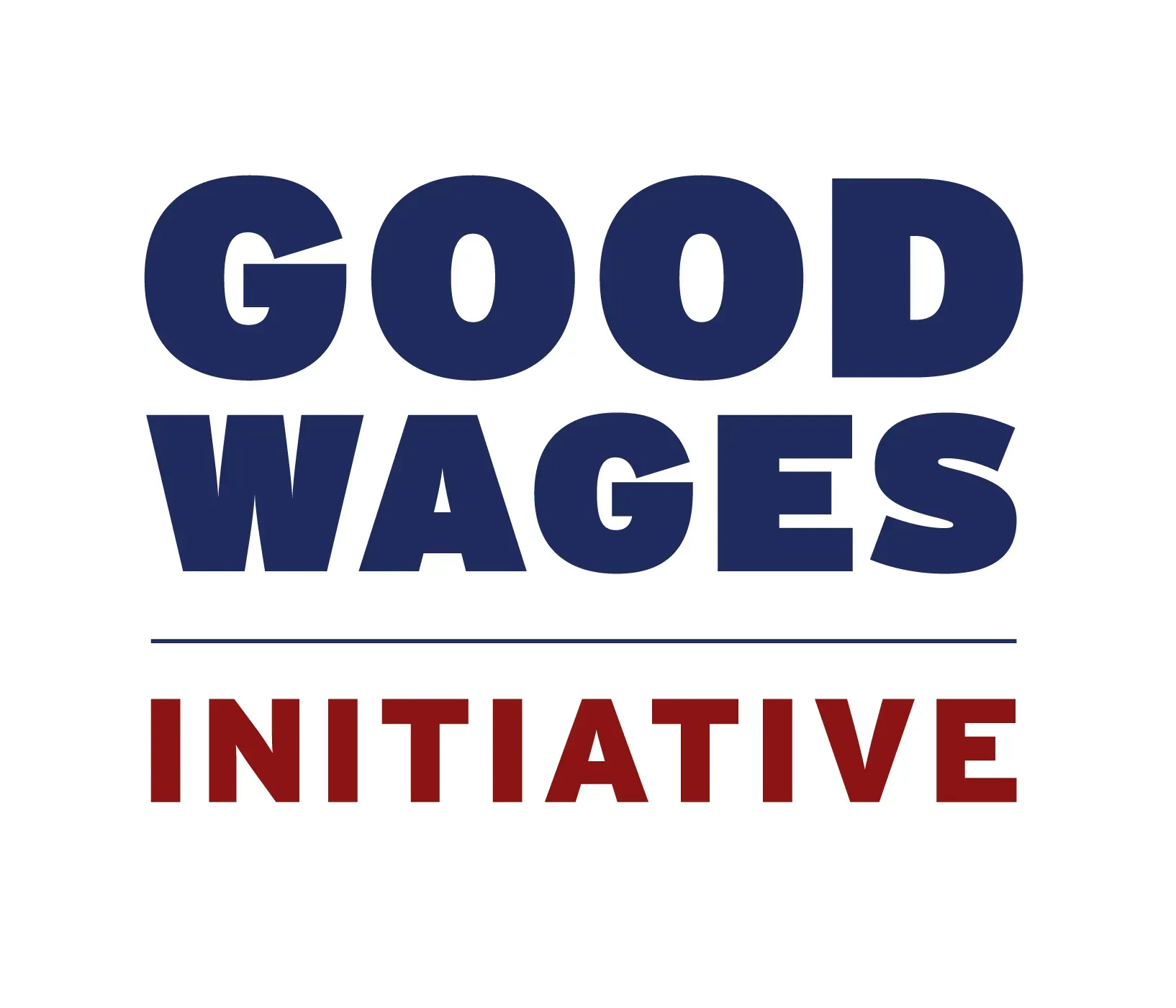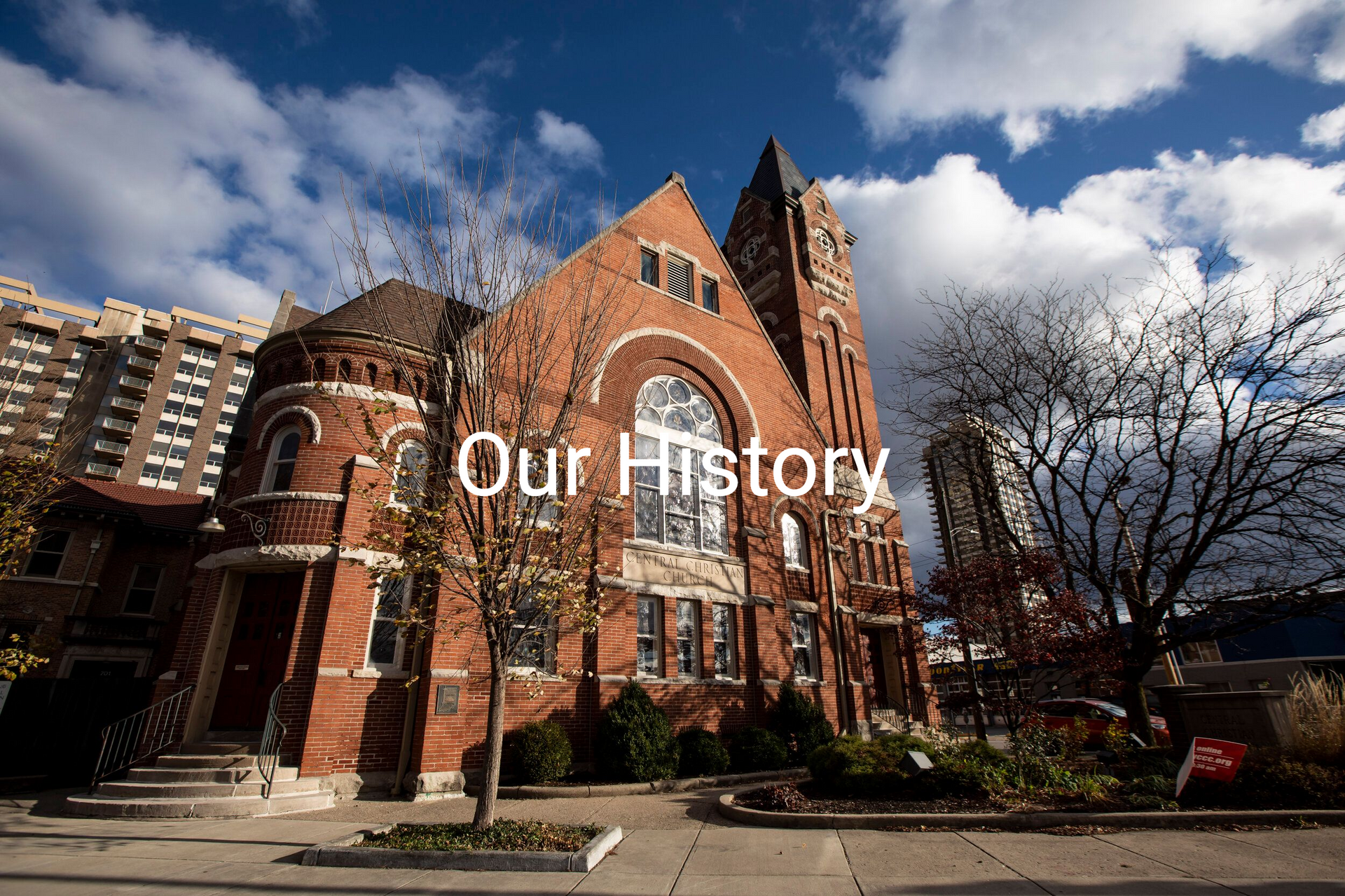
Central Christian Church has a rich tradition in downtown Indianapolis and within the Christian Church (Disciples of Christ). In 1832 the evangelist John O'Kane organized cottage meetings that would lead to the establishment of the congregation. From humble log cabin roots and a heritage of strong anti-slavery convictions to its late twentieth century embrace of the LGBTQ+ community, Central has been a leader among churches in progressive witness, growing into and remaining a vibrant, inclusive congregation whose journey is woven into the very fabric of the city’s life.
Journey to Open and Affirming
In the late twentieth century, Central extended its tradition of leadership and social engagement through a careful, decades-long journey that culminated in its becoming an Open & Affirming congregation
Beginning in the late 1980s, Central responded to the AIDS crisis with compassion, hosting support groups, volunteering at an AIDS hospice, and holding one of the city’s first AIDS-related funerals. These early actions opened the way for further inclusion, including same-sex union ceremonies in the 1990s. After nearly two decades of dialogue and study, the church formally adopted its Open & Affirming statement in 2008. Today, Central continues this covenant through public advocacy, participation in Pride, and a commitment to remain a safe and welcoming spiritual home for all people.
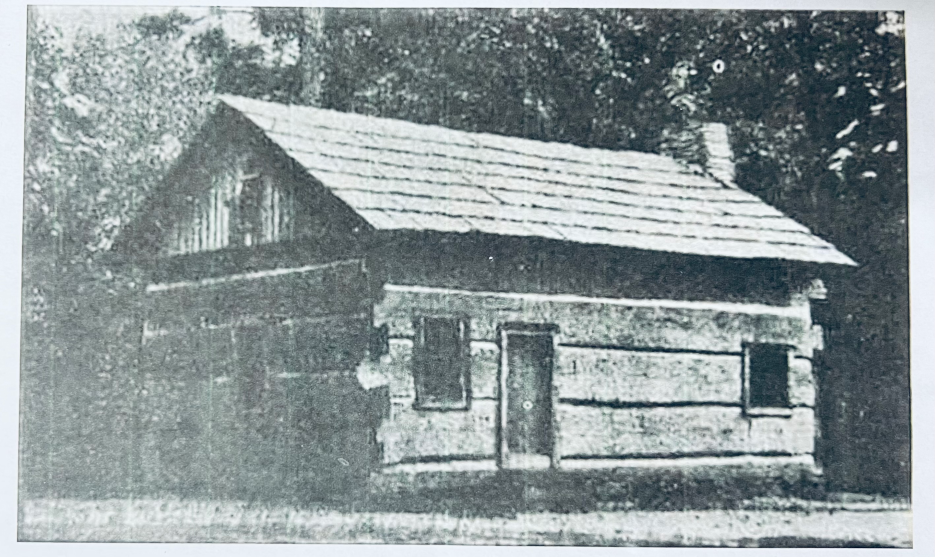
Benjamin Roberts' Log Cabin
The Early Years
Central’s recent journey builds on a foundation of nearly two centuries of witness, beginning in June 1833 when twenty charter members gathered in Benjamin Roberts’ log cabin in what was to become downtown Indianapolis to organize the First Church of Christ. Six years later, they built their first meetinghouse, a modest frame structure on Kentucky Avenue, between Capitol and Senate.
Early leadership held its members to strict Christian principles. The Board of Elders considered striking individuals from the church rolls for offenses, such as inadequately supporting church finances, selling whiskey, failing to pay one's debts, or even attending a Presbyterian church. Men and women were segregated during worship.
Christian Chapel replaced the meetinghouse in 1852 and was the city's largest house of worship. Its black walnut pews would accommodate 450 people. The structure boasted a pulpit, gas lighting, furnace heating, and a pipe organ. The redbrick portion of Central's present building was constructed in 1892 when the congregation outgrew Christian Chapel.
Influential Leadership
From its inception, Central attracted movers and shakers on the Indianapolis social scene and in the Christian community. Some early members were Ovid Butler, anti-slavery leader and founder of Butler College (later Butler University) and David Wallace, who became governor of Indiana in 1837. His son Lewis "Lew" Wallace, Civil War general and author of Ben-Hur, also attended Central.
Zerelda Sanders, who wed David Wallace, was a leader in the temperance and women's right to vote movements and a charter member of the church. It was her refusal to partake of alcoholic wine that led to the denomination's subsequent use of grape juice in its communion sacraments.
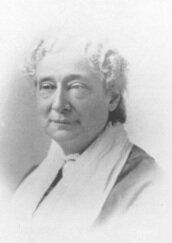
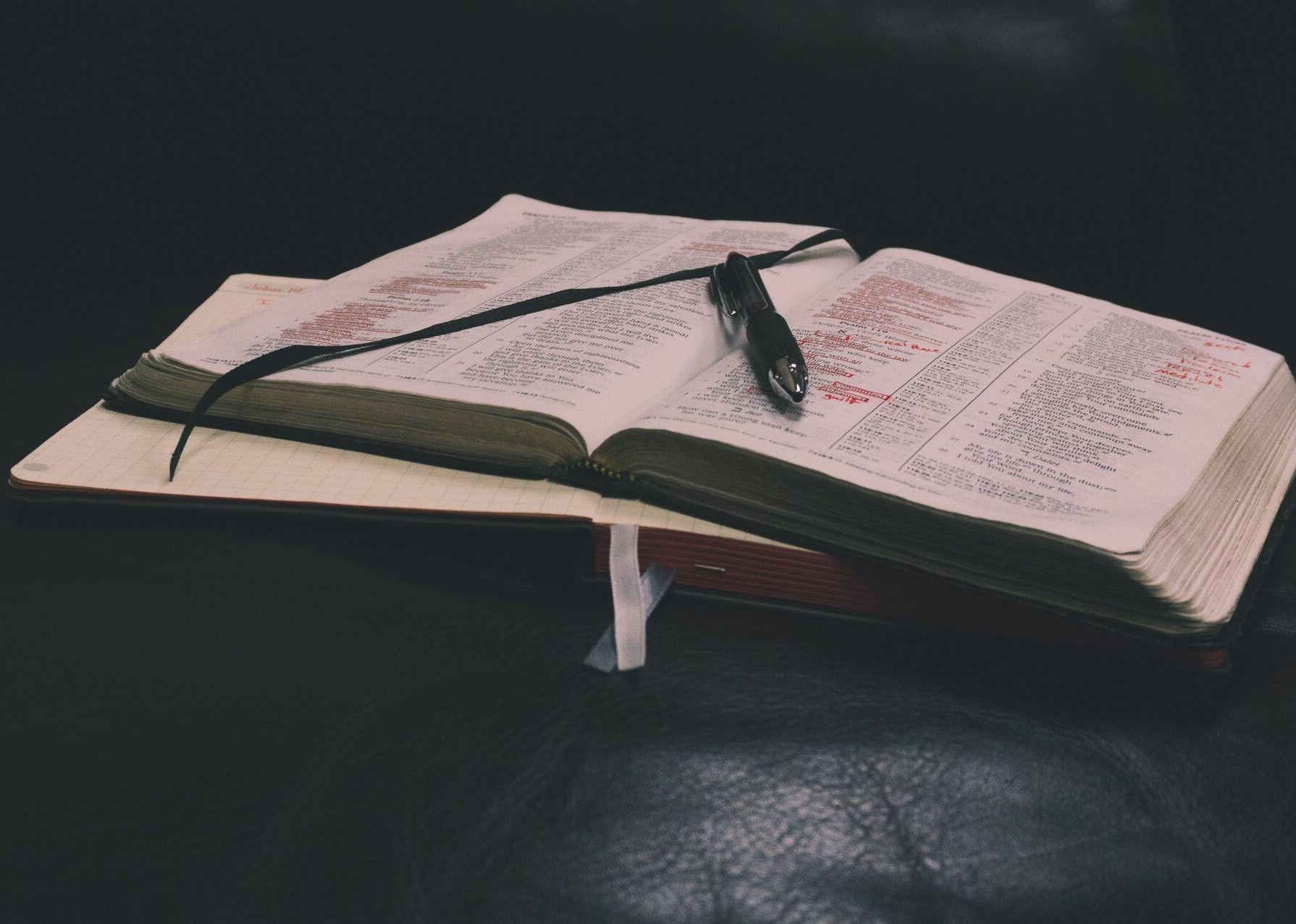
Distinguished Pastorate
Central has been blessed with inspired and inspiring ministerial leadership during its history. Love Jameson was called as Central's first "evangelist" in 1842, at a salary of $300 a year. Allan Philputt (1898-1925) and William Shullenberger (1926-1956) each enjoyed tenures of more than 25 years. Barbara Blaisdell became the first woman to serve as senior minister in 1990.
Most recently, Linda McCrae continued for twenty-two years in a tradition of leading, teaching, and helping the church community listen for God's voice.
Sources & Acknowledgments
The following sources contributed to the historical content presented on this site:
Books & Publications
- Shaw, Henry K. Hoosier Disciples: A Comprehensive History of the Christian Church (Disciples of Christ) in Indiana. St. Louis: Bethany Press, 1966.
- 125 Years: Central Christian Church, Indianapolis, 1833–1958. McDaniel Press, Indianapolis, 1958.
Oral History
- Turning Points: Stories from the Journey to Open & Affirming. Video interview series produced by Central Christian Church (Disciples of Christ), 2022. Available via our YouTube Channel or directly as the Turning Points playlist
Archival Collections
- Monday Club Records (1895–1975), (a progressive auxiliary of Central Christian Church). Collection #SC 1101, Indiana Historical Society, Indianapolis.
Some materials are housed in the church and other archives and are not currently available online. For access, please contact the church office.

